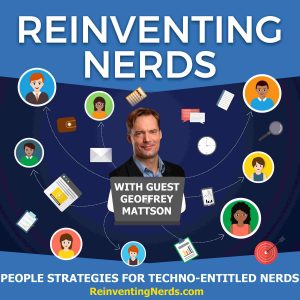![]()
Joanie has a conversation with Nihar Bhakta, who is a project team leader at Gossamer Bio. Nihar is a kidney transplant physician by training and has worked in biotech and pharma for about 14 years. Nihar has a very thoughtful approach to collaboration and teamwork and discusses the challenges that arise in biotech and pharma and what he’s done to lead teams effectively. Not surprisingly, a lot of his learning was from trial and error, and Nihar is very open about how he leaned into his humility to succeed.
Highlights:
Q: What do you do at Gossamer?
“I am the project team lead for one of our assets. A lot of my responsibilities revolve around ensuring that all of the various items that need to get done on our project team get accomplished. It’s enabling and helping the team get through decisions and key pain points, etcetera, and also making sure the team is collaborative.”
“One of the things that’s vital to any team is ensuring that they have good lines of communication where there are challenges or issues are resolved. As team leaders, a lot of the time we spend focused on is ensuring what needs to get done, what the important work is that the team should be focused on, and how can we work best together. A lot of that has little to do with my training, both as a physician and in terms of what we do from a broader perspective in drug development. It really is about how our teams function and collaborate together.”
Q: How is it that you didn’t have the training in pharma and biotech for what you’re doing?
“We’re trained as scientists and data really drives so much of what we do. How you conduct experiments is so important. We all are trained to make sure we’re designing the right experiments and the best experiments. But what we don’t realize is that we have a lot of different people who have different thoughts about how to design the best experiments because no one knows everything.”
“Every scientist has a blind spot in that individual people can drive great successes, but if you ask almost any great scientist, there’s always a team of people who they’ve worked with, there are always people who have collaborated with them, or there are other people who’ve they’ve based their work on.”
Q: How did you learn how to collaborate and communicate?
“Most of it was trial and error. Most of it is being an individual contributor, knowing the biology, the side effects, and so on. That’s how you develop your expertise. With what we do in biotech and in drug development, you have to apply the science of what you’ve learned. The application of that work is often driven individually, but sometimes it’s the interpretation of what comes out of those results. And the interpretation can be a very collaborative effort.”
“Some of those skills I learned a long time ago. During training, when we’re residents, there is a lot of education that goes on and there are a lot of people you have to mentor. That’s the role of a senior resident or attending physician. I’m not proud of this by any stretch of the imagination, but I had a proclivity to make interns cry in residency. It wasn’t because I was yelling at people. It was because I would be talking to them about science or trying to educate them on what they might have done which wasn’t appropriate for the patient, and that lead to some very difficult interactions.”
To hear Nihar’s example about a real patient and to hear more about his approach to teamwork, leadership, and collaboration, listen to the episode.
Words of Wisdom:
“How you get the work done is just as important as the work you’re getting done.”
“It’s important to think about how we can design the best experiment, not how I can design the best experiment.”
“We all collaborate in some capacity.”
“Data is complicated. It can be overwhelming for one person to interpret it.”
“When you’re talking about data, you have to realize who you’re talking to and what mindset they’re in.”
Contact Nihar Bhakta:
LinkedIn: https://www.linkedin.com/in/nihar-bhakta-3a53b69/
Website: https://www.gossamerbio.com/
Podcast: Play in new window | Download
